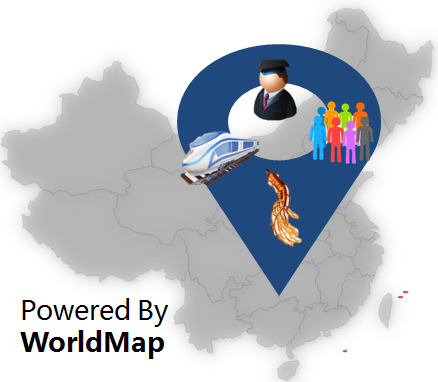ZJU and Harvard Join Force to Develop Chinese Academic Mapping Platform

On October 13, Zhejiang University and Harvard University signed a memorandum of understanding (MoU) with respect to the joint development of the Chinese Academic Mapping Platform at Harvard Center for Geographic Analysis (CGA). Present at the ceremony were WU Zhaohui, President of Zhejiang University, Peter K. BOL, Vice Provost for Advances in Learning at Harvard and Mark ELLIOTT, Vice Provost for International Affairs at Harvard.
Geographic information is intimately tied to human activities. For an individual, it includes his or her place of birth and the geographic distribution of his or her social relationship; for a group, it includes its geographic distribution and migration route; for a non-living object, it includes the region and track of its existence, distribution and shift; for a locale, it includes an aggregate body of geographic information regarding people, events and objects in the past. At present, various countries all over the globe are endeavoring to build a diversity of databases through data mining.
WorldMap is a web platform for creating, displaying, analyzing, and searching spatial data and other data forms across multiple disciplines. It is developed by CGA at Harvard to lower barriers for scholars who wish to explore, visualize, edit, collaborate with, and publish geospatial information. For example, its ChinaMap includes an array of data and visual maps in various fields, such as demography, religion, transportation, urban studies, ethnicity, language, energy, environment, education, climate, public health, economy and history.
Considering the fact that there is no comprehensive academic mapping platform at present in China, ZJU and Harvard will collaborate with each other to develop an academic mapping platform appropriate for China. Upon completion, the platform will provide scholars as well as the general public with the services of publishing, sharing, and comparing geographic data layers, thereby offering crucial references for future academic research, policy-making and social services.
Prof. Bol gave a briefing on the background against which CGA was set up and stressed the importance of the GIS technology and the urgency of promoting the development of relevant technological research. CGA provides a helpful platform for the integration of spatial data from a wide spectrum of disciplines and sources. Prof. Peter K. Bol also talked about the application of GIS in researching into humanistic and historical data in ancient China and highlighted the roles of geospatial analysis and visualization on humanities and social sciences. Prof. Elliott highly praised this cooperative project as a major breakthrough. He said it would promote the creation of knowledge to help people study better and live better, which could help the two institutions achieve their common goal of seeking truth, as the mottos of both universities indicated.
“The integration of Harvard’s WorldMap technology and China’s data resources will be a mutually beneficial and meaningful partnership”, WU Zhaohui said. He pointed out that the future society will be based on a fusion of a physical world and a virtual world, which will act as a catalyst for emerging scientific issues. It is GIS that will become a vital junction between these two worlds. It will be of tremendous significance to display and analyze China’s brilliant history in a visualized manner with the use of GIS technology. The signing of this MoU marks a new beginning for the cooperation between the two universities, WU concluded.